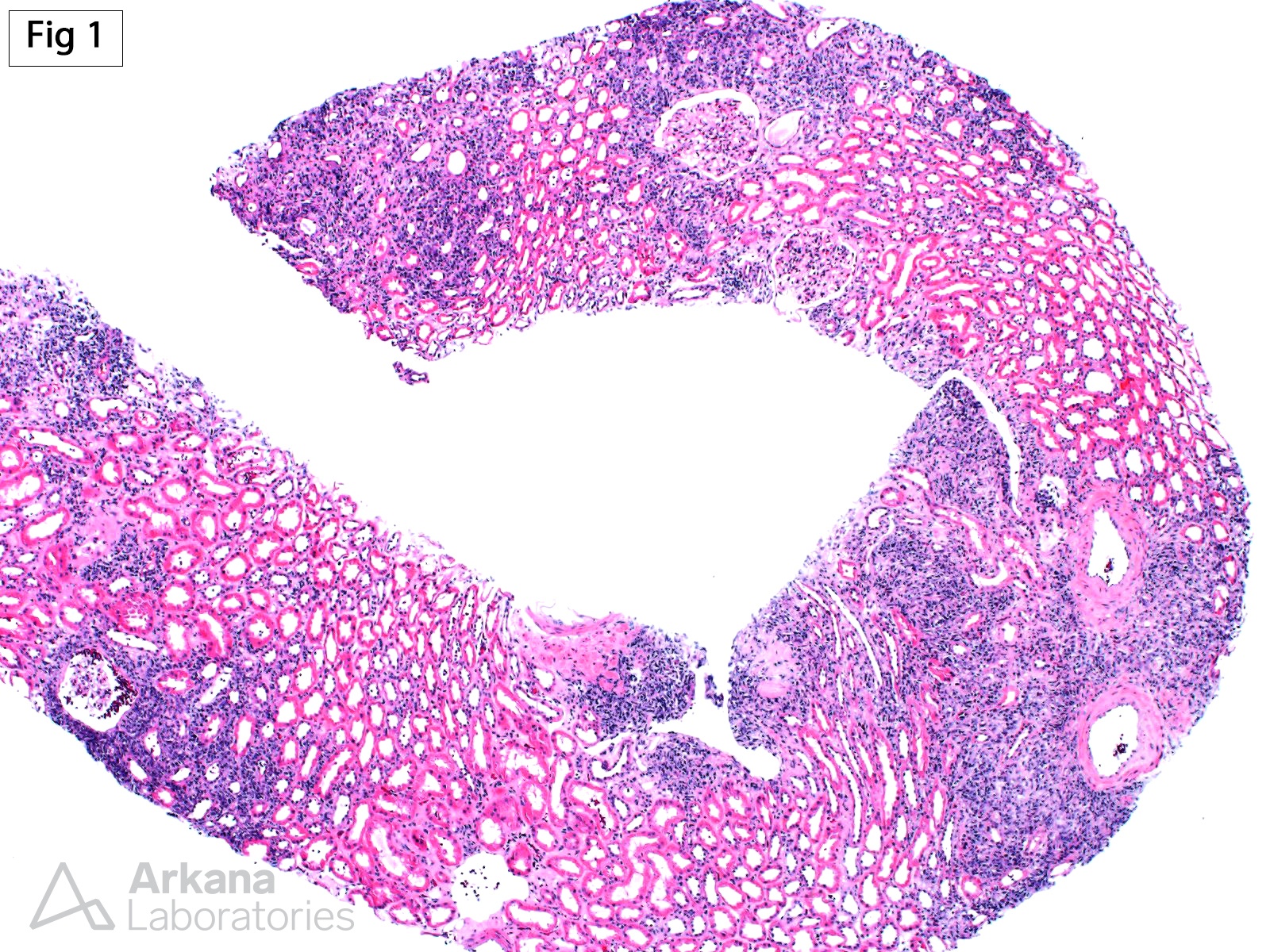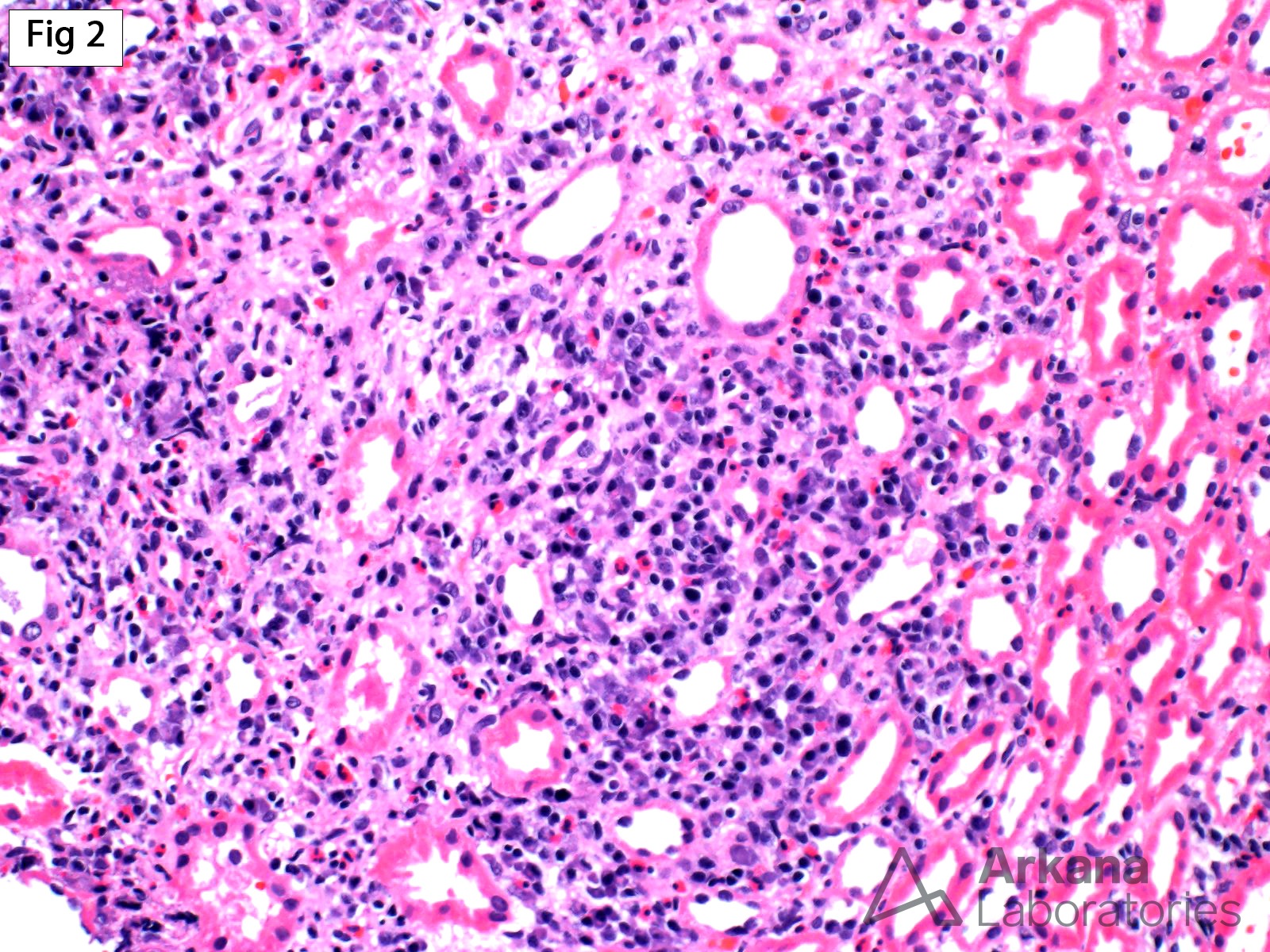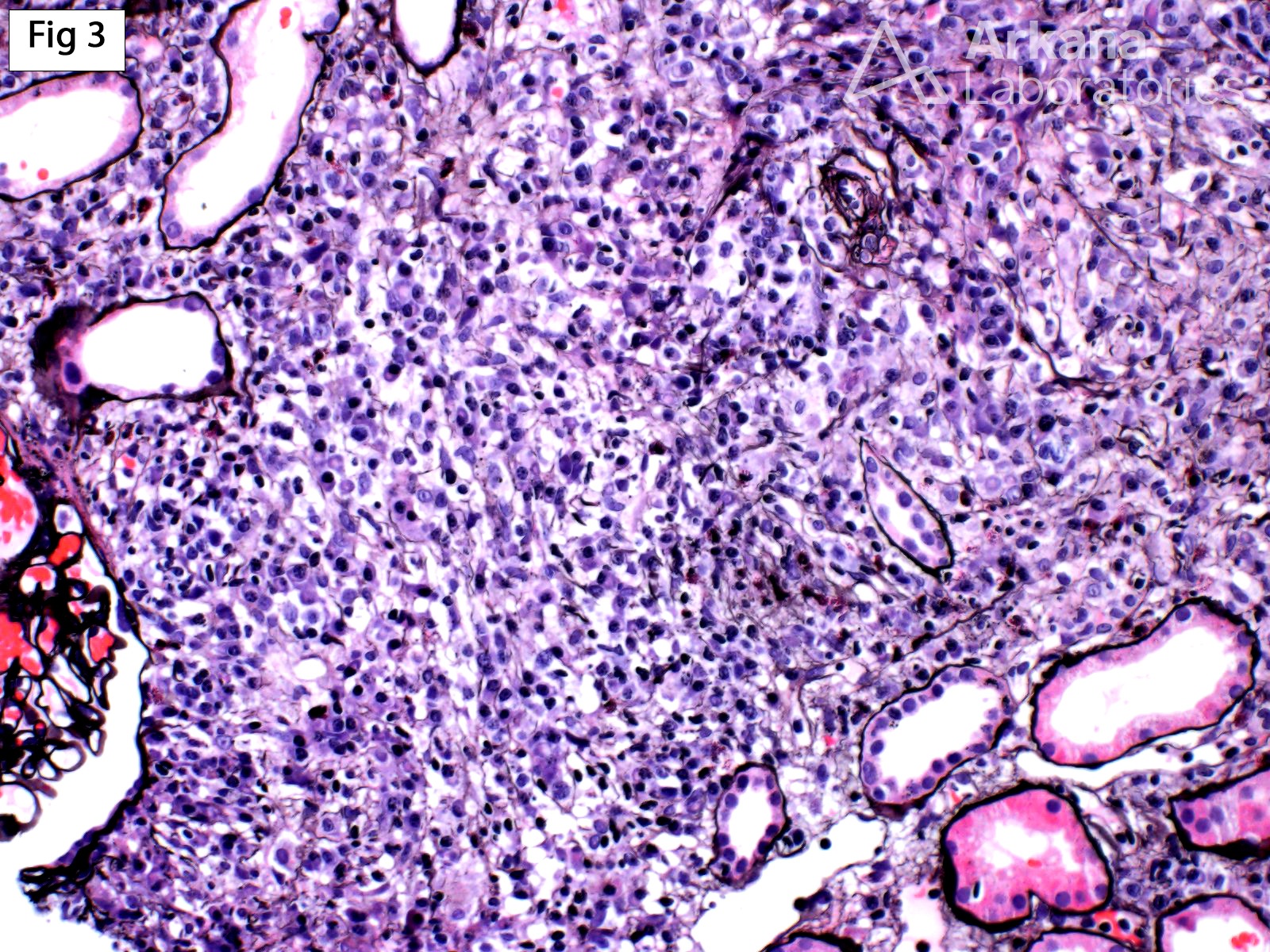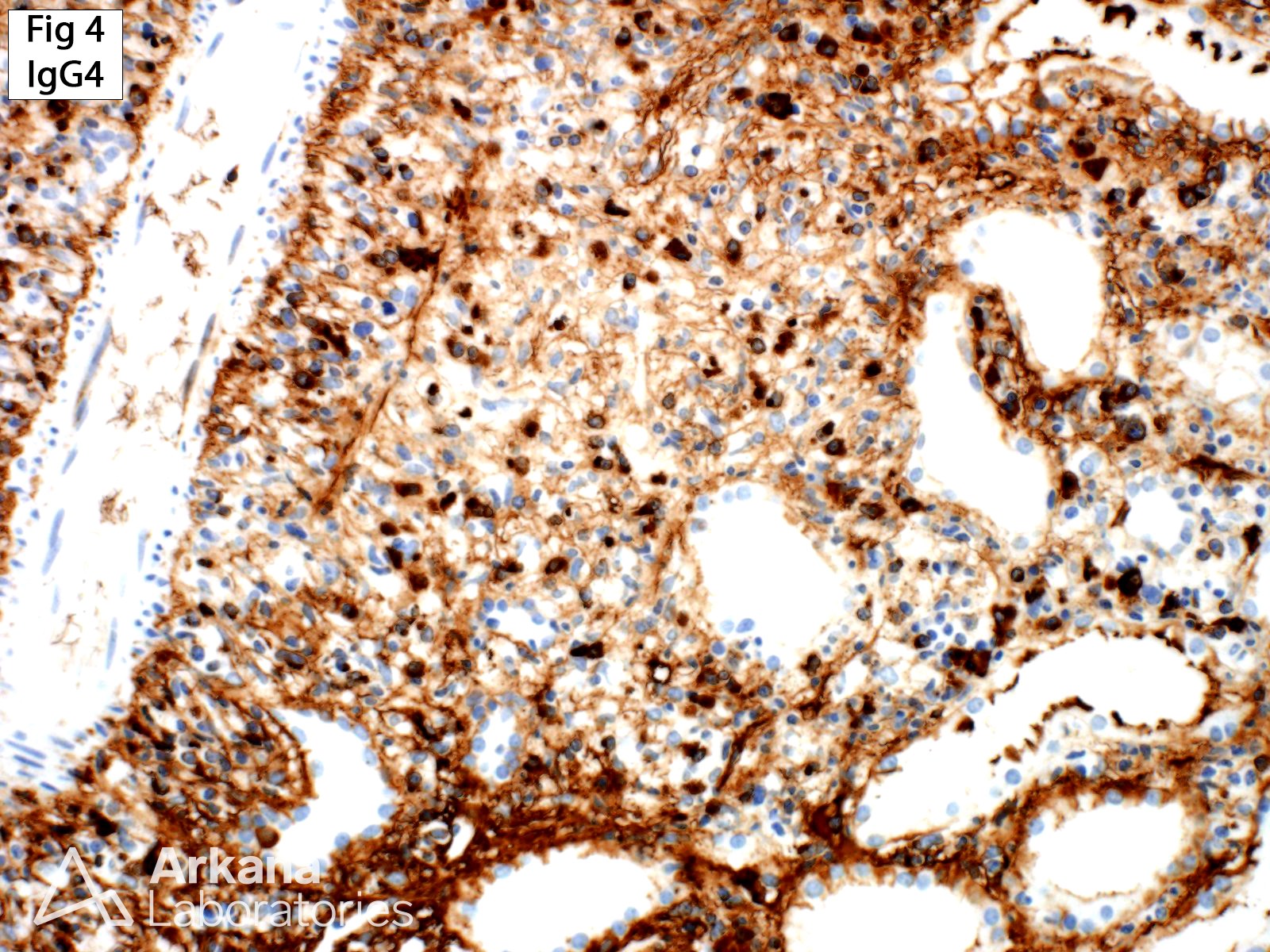IgG4-related disease is a systemic inflammatory and sclerosing disorder which may affect a wide range of different organs including the pancreas, salivary glands, lacrimal glands, lungs, blood vessels, lymph nodes, thyroid and kidneys among others. Patients may have multisystemic disease at the time of presentation, or different organs may progressively become involved over time. While the renal involvement may have different histopathologic patterns of injury, by far the most common is in the form of acute or chronic tubulointerstitial nephritis (IgG4-related tubulointerstitial nephritis). The renal biopsy shown (Fig 1-4) is from a 35-year-old male with a history of lymphadenopathy and elevated liver enzymes, who presents with acute pancreatitis and renal insufficiency. A prior liver biopsy showed non-specific plasma cell-rich portal inflammation with frequent eosinophils. The renal biopsy in discussion shows patchy and dense plasma cell-rich interstitial inflammation with frequent eosinophils, which alternates with areas of essentially uninvolved renal parenchyma (Fig 1 and 2). The infiltrate is accentuated around interlobular-sized arteries. Within and surrounding the areas of interstitial inflammation, varying degrees of tubulitis is present. While focal areas show early fibrosis displaying a reticular pattern (Fig 3), the biopsy lacks the characteristic sclerosing pattern seen in more advanced cases. An IgG4 immunoperoxidase stain shows numerous positive plasma cells which well exceed the diagnostic criteria of >10 IgG4+ cells per hpf (Fig 4). Of note, an IgG4+/IgG+ ratio of more than 40% has also been reported as an alternative diagnostic histologic criterion for this disorder; however, an IgG stain was determined to be irrelevant in this case and was not performed. Immunofluorescence shows positive tubular basement membrane granular staining for IgG, kappa and lambda limited to the tubules present within the areas of dense tubulointerstitial inflammation, which is an expected finding in this disorder. Finally, the biopsy shows no evidence of a membranous glomerulopathy, which is another form of renal involvement by IgG4-related disease.
Quick note: This post is to be used for informational purposes only and does not constitute medical or health advice. Each person should consult their own doctor with respect to matters referenced. Arkana Laboratories assumes no liability for actions taken in reliance upon the information contained herein.





